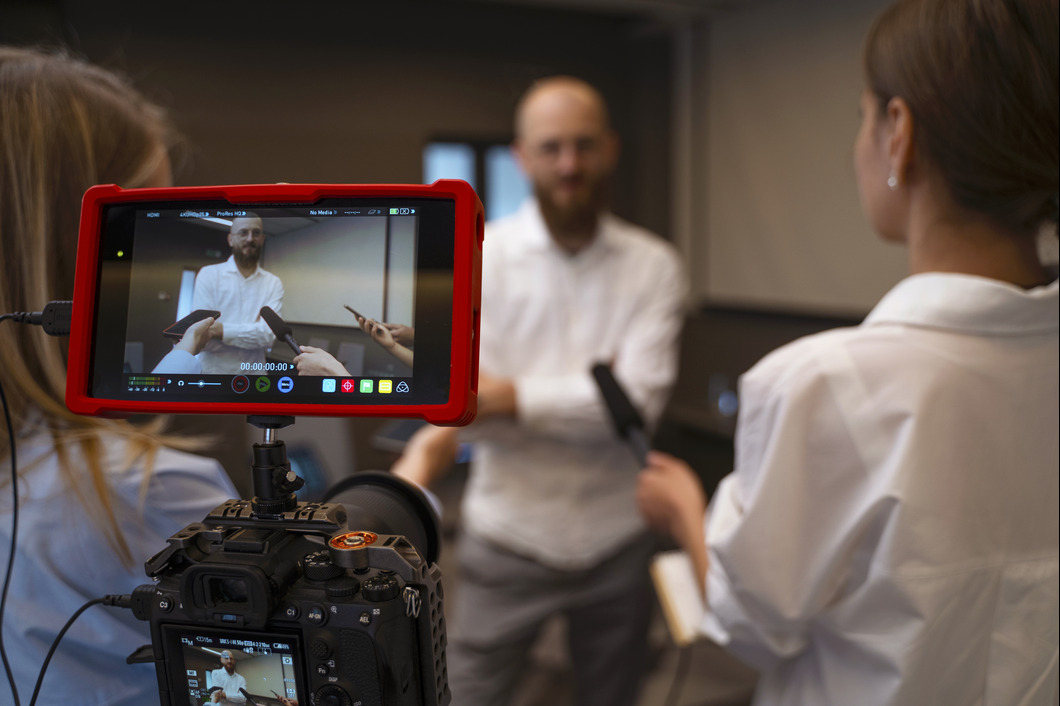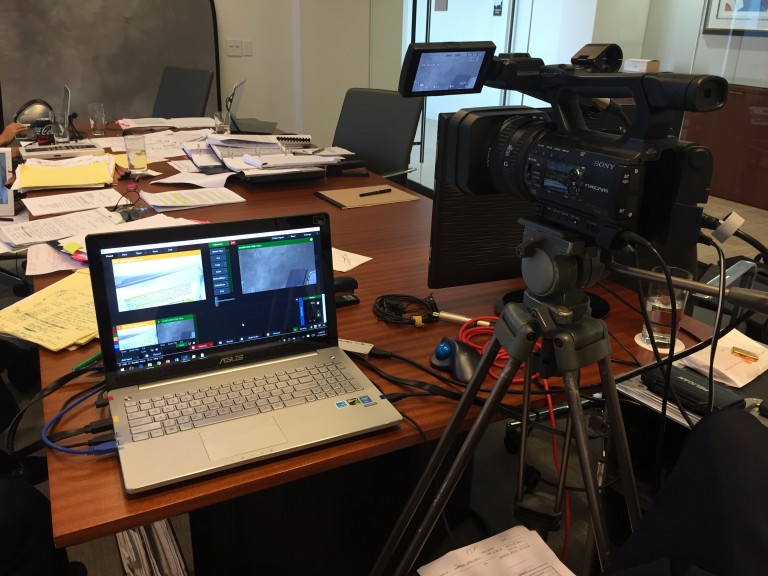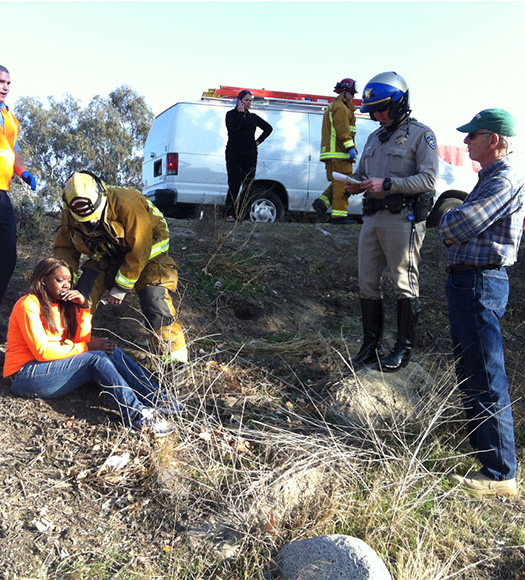Legal video depositions FAQs: Answering your most pressing questions
The Relevance of Lawful Video Clip Depositions in Modern Legal Solutions: What You Need to Know
Lawful video depositions have actually come to be vital in today's lawful landscape. They give a multidimensional view of witness statements that standard transcripts simply can not match. By capturing both spoken and non-verbal communication, these depositions boost the total understanding of a witness's integrity. The effectiveness of video clip depositions pivots on numerous variables, including conformity with lawful criteria and best techniques. Discovering these aspects exposes their real importance in modern lawful solutions
What Are Legal Video Clip Depositions?
Legal video depositions function as a vital tool in the litigation process. They involve videotaping witness testaments in a video clip format, catching both non-verbal and verbal communication. This technique enables attorneys to record the disposition, expressions, and reactions of witnesses, offering a richer context for the statement. Usually conducted in a regulated environment, these depositions are led by lawyers that ask questions while a stenotype reporter documents the discussion. The resulting video clip can be vital for test preparation, as it enables legal representatives to assess the reputation of witnesses and improve their strategies. Furthermore, lawful video depositions can be utilized in various legal contexts, varying from civil disputes to criminal cases. The acoustic and aesthetic elements of video depositions boost the discussion of proof, making it a necessary component in the modern-day lawful landscape. Overall, they add substantially to the performance and efficiency of legal process.

Benefits of Video Depositions Over Traditional Approaches
Video clip depositions offer many advantages compared to traditional approaches of taking witness statements. One substantial benefit is the capacity to record both aesthetic and audio elements, providing a much more comprehensive record of the witness's declarations. This dual format improves quality and allows attorneys to reference certain nuances throughout test preparation. Additionally, video clip depositions assist in remote involvement, making it easier for witnesses who might be inaccessible for in-person looks due to geographical restrictions or health and wellness issues.Moreover, video depositions can accelerate the total deposition procedure, minimizing the moment and expenses related to traveling and logistics. They also enhance availability, as recorded depositions can be easily shared amongst lawful groups and referenced any time. This ease adds to far better situation management and preparation. On the whole, video depositions stand for a modern-day, efficient approach to gathering witness testimonies, aligning with the developing demands of the legal profession.
The Function of Body Language and Tone in Testimonies

In lawful video depositions, body language and tone play essential functions in conveying a witness's reliability and credibility. Nonverbal hints can give understandings into a witness's emotion, influencing how their testimony is regarded. Understanding the influence of these components is essential for jurors and lawyers alike when examining the reliability of a testimony.
Nonverbal Communication Insights
While spoken communication is usually stressed in legal testimonies, nonverbal cues such as body language and tone play an important function in conveying reliability and emotion. Observers of depositions may note that a witness's posture, gestures, and faces can greatly influence assumptions of integrity. Consistent eye call may signal self-confidence, while preventing gaze could recommend dishonesty or pain. The tone of voice-- its pace, pitch, and volume-- can impart sensations of genuineness or unpredictability. Lawyers need to be in harmony with these nonverbal signals, as they often offer important context that matches spoken words. Recognizing these nuances can enhance the effectiveness of depositions and affect the outcome of lawful proceedings.
Emotional Tone Impact
The psychological tone communicated throughout lawful testimonies substantially affects exactly how a witness is viewed. Body language, vocal inflections, and face expressions play essential roles in shaping the narrative of a statement. A witness displaying self-confidence through constant eye contact and a calm tone can instill a sense of integrity and interaction. Conversely, indications of anxiousness, such as fidgeting or an unstable voice, might lead to uncertainty regarding their account. The subtleties of psychological expression can affect the analysis of facts, making it crucial for lawful professionals to identify these signs. In video depositions, the auditory and aesthetic parts combine, highlighting the importance of psychological tone in sharing sincerity and reliability within the legal procedure.
Reputation and Reliability
An important aspect in developing reputation and trustworthiness during testimonies depends on the witness's body movement and tone of voice. Onlookers frequently count on non-verbal signs-- such as eye get in touch with, posture, and motions-- to examine a witness's sincerity. For instance, a witness who preserves eye call and presents open body language may be perceived as even more straightforward and reliable than one who prevents eye call or shows up closed off. In addition, intonation plays a crucial role; a stable, tranquil tone can enhance the reliability of the statement, while changes in pitch or quantity might elevate doubts. Inevitably, the combination of body movement and vocal tone greatly influences just how a witness's declarations are received and interpreted in a lawful context.
Best Practices for Conducting Video Depositions
Carrying out video depositions needs careful planning and implementation to assure a clear and reliable discussion of statement. Initially, it is necessary to select a quiet, well-lit location to minimize interruptions and secure optimal video top quality. The tools must be checked ahead of time, including cams, microphones, and illumination, to avoid technological issues throughout the deposition.Next, celebrations entailed should assess the style and procedures beforehand, making certain that everybody recognizes their roles. The deponent must be oriented on the process, consisting of exactly how to respond plainly and concisely.Additionally, keeping a professional attitude throughout the session is essential. This includes avoiding talking over one another and confirming that all questions are guided appropriately. It is crucial to tape the deposition in a style that permits for simple playback and review, maintaining the honesty of the testament for future use.
Lawful Considerations and Conformity Issues
How do lawful factors to consider and compliance concerns affect the effectiveness of video clip depositions? Lawyers should navigate a complicated landscape of policies, making certain that video clip depositions comply with jurisdictional regulations and standards. Conformity with regulations concerning personal privacy, authorization, and taping approaches is essential. As an example, acquiring specific permission from all parties entailed is needed to prevent legal repercussions.Additionally, the admissibility of video clip proof in court can hinge on conformity with step-by-step needs. Ensuring that the devices used fulfills technological requirements is additionally important, as bad high quality can undermine the deposition's reliability.Moreover, lawyers have to recognize any specific state laws that govern video depositions, as these can differ significantly. Failure to attend to these factors to consider can not just threaten the honesty of the deposition however also influence the general case strategy, ultimately impacting the client's lawful outcomes.
Exactly How Video Depositions Effect Court Perception
While video depositions can function as effective tools in legal procedures, their impact on jury assumption is substantial. The acoustic and visual aspects of video recordings provide jurors with a more detailed understanding of witness behavior, reputation, and psychological find out here responses. This multimedia method can boost the jurors' capability to evaluate the dependability of testimony compared to typical text-based transcripts.Moreover, video depositions allow jurors to observe body language, tone of voice, and face Continued expressions, every one of which can impact their interpretation of the witness's declarations. The presence of a witness on screen can humanize them, fostering empathy and connection, which may sway jurors' viewpoints. Alternatively, a witness that appears untrustworthy or evasive on video may result in adverse understandings that affect a jury's choice. Ultimately, the dynamic nature of video clip depositions plays a vital duty fit how jurors analyze evidence and reach their decisions.
The Future of Video Depositions in Legal Technique
As improvements in modern technology remain to improve the legal landscape, the future of video depositions is poised for significant advancement. Innovations such as man-made intelligence, virtual truth, and improved video clip conferencing devices are anticipated to streamline the deposition procedure and boost access. Lawyers may make use of AI-driven analytics to analyze witness reliability and situation strength much more effectively.Moreover, the integration of online truth might enable juries to experience immersive simulations of depositions, offering much deeper context and understanding. Furthermore, the pattern toward remote depositions is most likely to continue, supplying higher flexibility for attorneys and clients alike.As remote work comes to be progressively normalized, video clip depositions will likely end up being typical practice, minimizing prices and time constraints connected with conventional techniques. On the whole, these technological improvements assure to boost the performance, effectiveness, and ease of access of video clip depositions in lawful method, ultimately transforming how lawyers prepare for test.
Regularly Asked Questions
How Much Do Legal Video Depositions Typically Expense?

Can Video Depositions Be Made Use Of in Any Kind Of Kind Of Instance?
Video clip depositions can be utilized in numerous kinds of instances, including civil, criminal, and family members law. Their adaptability allows lawyers to present witness testimonies successfully, adjusting to the specific demands of various legal circumstances.
What Equipment Is Needed for a Video Clip Deposition?
To carry out a video deposition, necessary tools consists of a high-quality video camera, microphone, illumination, and a trustworthy recording tool. Additionally, a computer system with editing and enhancing software application may be needed for post-production and formatting the final video.
Exactly how Lengthy Does a Typical Video Clip Deposition Last?
A normal video deposition lasts in between two to 4 hours, depending on visite site the complexity of the situation and the variety of concerns posed. Extensive sessions might occur, yet breaks are generally integrated for participant convenience.

Are Video Depositions Admissible in Court?
Video clip depositions are normally acceptable in court, supplied they stick to lawful requirements and rules of evidence. Their usage improves clarity and maintains witness statement, helping in the judicial procedure during hearings and trials. Legal video depositions have ended up being vital in today's lawful landscape. Furthermore, lawful video depositions can be made use of in different legal contexts, varying from civil disagreements to criminal situations. Additionally, video clip depositions assist in remote involvement, making it easier for witnesses who may be not available for in-person looks due to geographical constraints or health and wellness issues.Moreover, video clip depositions can expedite the general deposition procedure, minimizing the time and prices connected with travel and logistics. Making certain that the devices used satisfies technical criteria is likewise vital, as inadequate top quality can undermine the deposition's reliability.Moreover, lawyers should be mindful of any details state legislations that regulate video depositions, as these can differ greatly. Additionally, the trend toward remote depositions is likely to continue, providing better versatility for attorneys and clients alike.As remote job comes to be progressively stabilized, video depositions will likely end up being typical practice, reducing costs and time restrictions linked with conventional approaches.